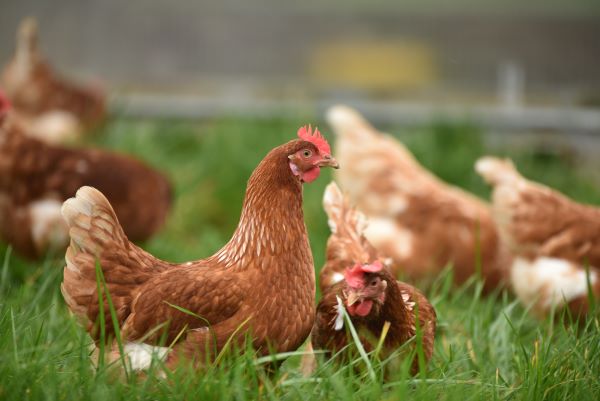The avian flu is a deadly illness affecting chickens, ducks, geese, turkeys, quail, pheasants and wild birds. Once the disease affects your flock, it can run rampant, and it’s usually fatal to chickens and turkeys. The best course of action is to prevent it altogether.
Poultry farming is one of the most important sectors in sub-Saharan Africa. The avian flu can be deadly, but thankfully, there are numerous ways to protect your birds against getting sick.
1. Clean Frequently
Because avian flu virus particles can linger up to 158 days in water at a temperature of 62.6° Fahrenheit, you must regularly clean your coop and run to prevent your birds from getting sick. Cleaning will also reduce the chances of other illness outbreaks that could weaken your birds’ immune systems.
Refresh the water, wash all food and water containers, wipe down the nest boxes and clean up poop. Also, remember to change out the straw in the nest boxes frequently.
2. Cover the Poultry Run
Avian flu starts with contact with infected wild birds. Covering your poultry run with netting or a roof drastically reduces the chances of wild birds landing in the coop and spreading disease. As a bonus, this protective measure also prevents hawk and owl attacks.
3. Make the Run Bigger
Avian flu flourishes in crowded conditions. The closer your birds are to one another, the more often they’ll come in contact with specific flock members, including sick birds. If you have the resources, expand your poultry run so the birds can spread out more.
4. Ask Guests to Wash Their Hands
If your friends or neighbors want to handle your birds, ask them to wash their hands before and after holding them. It will reduce the chances of transmission to and from your poultry.
5. Use a Covered Feeder
Wild birds are often attracted to chicken feed. Use a covered feeder — like the kind with an automatic trough — to prevent birds from accessing the feed.
6. Quarantine New or Sick Birds
When buying birds to expand your flock, always quarantine the new arrivals for at least 30 days. It will allow you to observe the new birds for signs of disease and ensure they don’t spread avian flu to your entire flock.
If you notice any of the existing birds in your flock acting lethargic or sick, immediately quarantine them. Chickens and turkeys almost always die from avian flu. Waterfowl might survive, but they can still spread the disease in their feces and saliva for up to 10 days, so it’s wise to separate them even after symptoms resolve.
7. Remove Birdfeeders
If you have birdfeeders near your coop or run, move them far away so you don’t attract wild birds to the area. The saliva and droppings from wild birds can spread avian flu.
8. Inspect Your Flock
Check on each of your birds every day. Do they look healthy? Are they engaging in routine behaviors, like eating the usual amount of food and water? Inspecting your birds daily will help you catch problems as soon as they arise.
9. Don’t Share Equipment
While it’s nice of your neighbors to lend you their broom or shovel, don’t share tools with other poultry owners. Contaminated dirt can spread avian flu.
10. Reduce Stress
Happy birds are generally healthier than stressed birds. Take steps to ensure your flock is comfortable and able to engage in normal behaviors.
Remove any lights from the coop, as they can interfere with birds’ sleep cycles. Offer ample shelter against heat and cold. Remove any bird-aggressive poultry — like roosters or geese that pick on hens — from your flock. And, of course, only keep one rooster per flock unless your birds free range over a large area.
Keeping Your Birds Safe
Once an avian flu outbreak starts, it’s tough to stop it. Therefore, the best thing is to prevent it in the first place. By cleaning your coop, giving your birds enough space and avoiding contact with wild birds, you’ll have the best chance at keeping a happy, healthy flock.
By: Jane Marsh ,Editor-in-Chief at Environment.co









